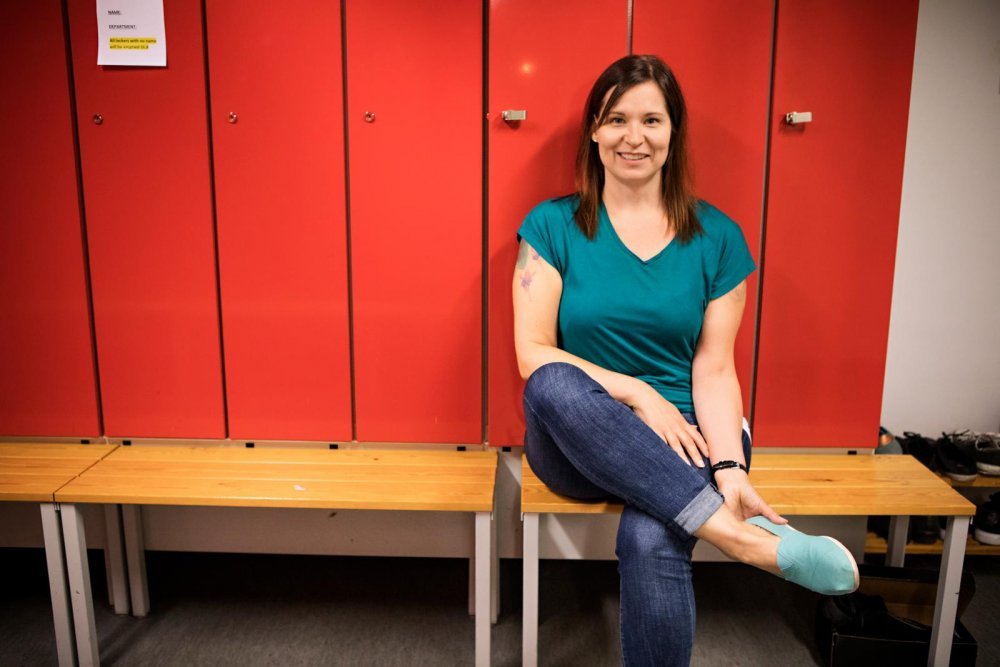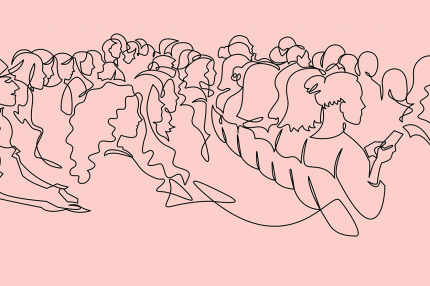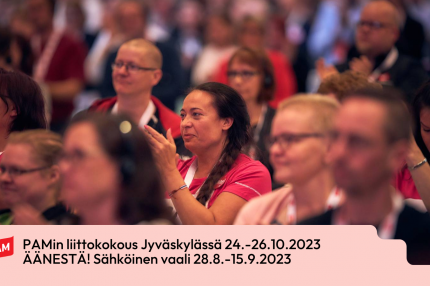Wellbeing
Fix the breaks in the hotel and restaurant industry!
Outi Mäkelä hopes that break practices will be improved across the hotel and restaurant industry. Photo: Eeva Anundi
The staff of Sokotel hotels has called attention to break times. According to Outi Mäkelä, a staff representative, both the employer and the employees should work on improving the unhealthy culture of breaks.
“You eat your food on the fly. Take one forkful, serve a customer, then take another forkful,” says Outi Mäkelä, describing a typically fragmented lunch break in the hotel and restaurant industry. Or employees may wait for a quiet moment which will never come, meaning that they do not take their statutory breaks at all.
Last summer, Outi Mäkelä worked the night shift at the reception desk of a hotel. Even though few customers came in at night, she wound up eating her meals standing up while attending to her work duties.
“The hotel and restaurant industry in general has an unhealthy break culture,” says Mäkelä.
Busy shifts and established customs of the industry are common reasons for skipping breaks. The number of staff for each shift is minimised, and breaks are not sufficiently discussed. Some employees may have just quietly accepted that they have to work with no breaks as a normal feature of the industry. In this field, lunch breaks are considered paid work time, if the employees are not allowed to leave the workplace.
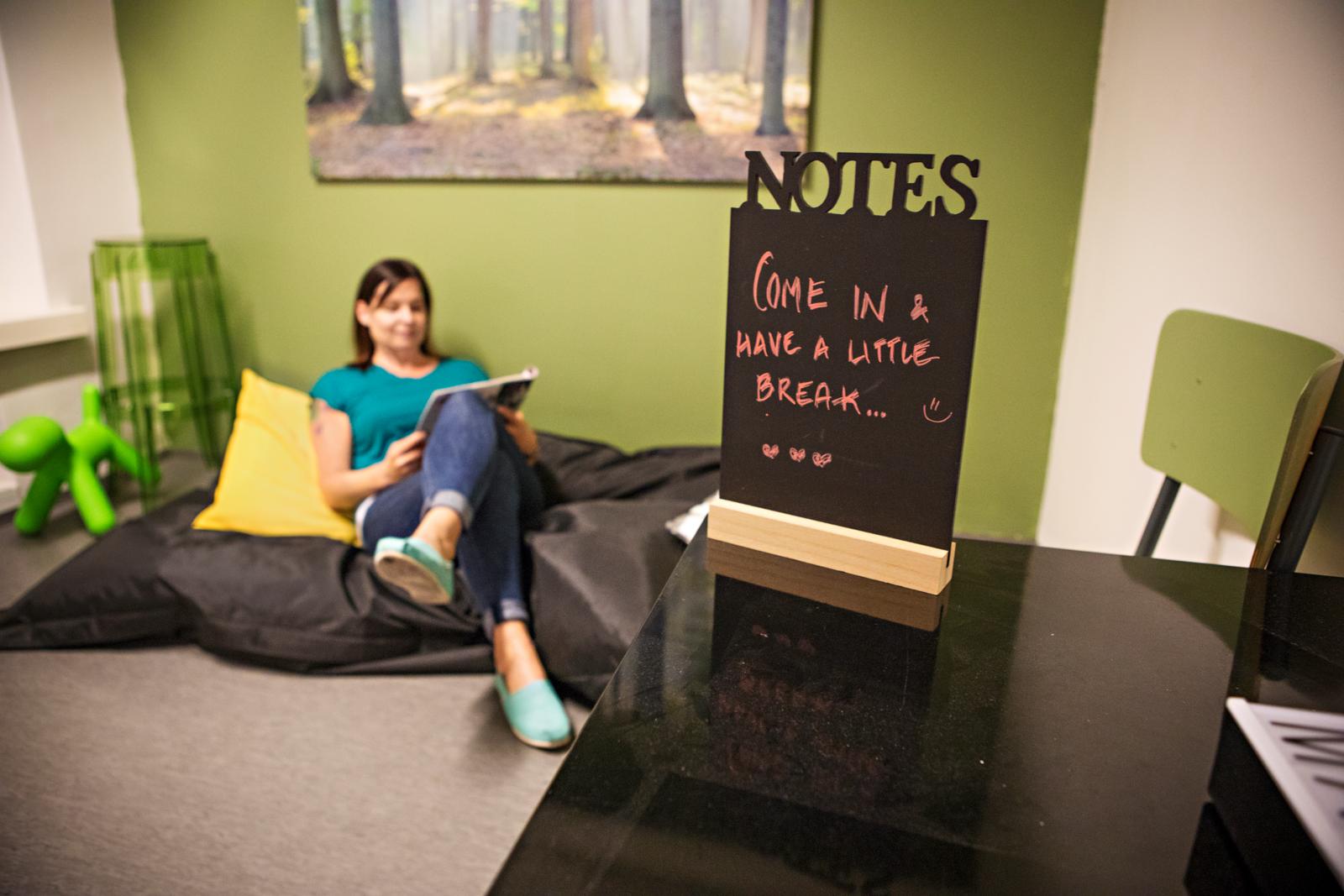
When staff representatives at Sokotel, the hotel chain that is part of SOK, sent out an email survey asking what employees thought needed fixing at work, the respondents raised breaks as a significant issue. The survey was sent to union members last autumn.
“We found something the employees were worried about, and we’ve started to move the issue forward together,” says a pleased Outi Mäkelä. At the time, she had become the acting chief shop steward in the greater Helsinki area. She had worked nights at the reception desk for five years.
Mäkelä shares an office with the company’s occupational safety delegate, Samuli Miettinen. Sitting downstairs at the Radisson Blu Hotel on Albertinkatu, they describe the break project at Sokotel together. In a second survey, employees were asked in more detail how they took their breaks. The results were shocking: most respondents reported that they missed breaks on a weekly basis. Miettinen explains that according to the respondents, the skipped breaks led to lapses in concentration, tiredness and even physical symptoms.
“Working without breaks has even caused absences due to illness,” Miettinen states and points out that the lack of breaks is also reflected on customer service and the willingness to upsell.
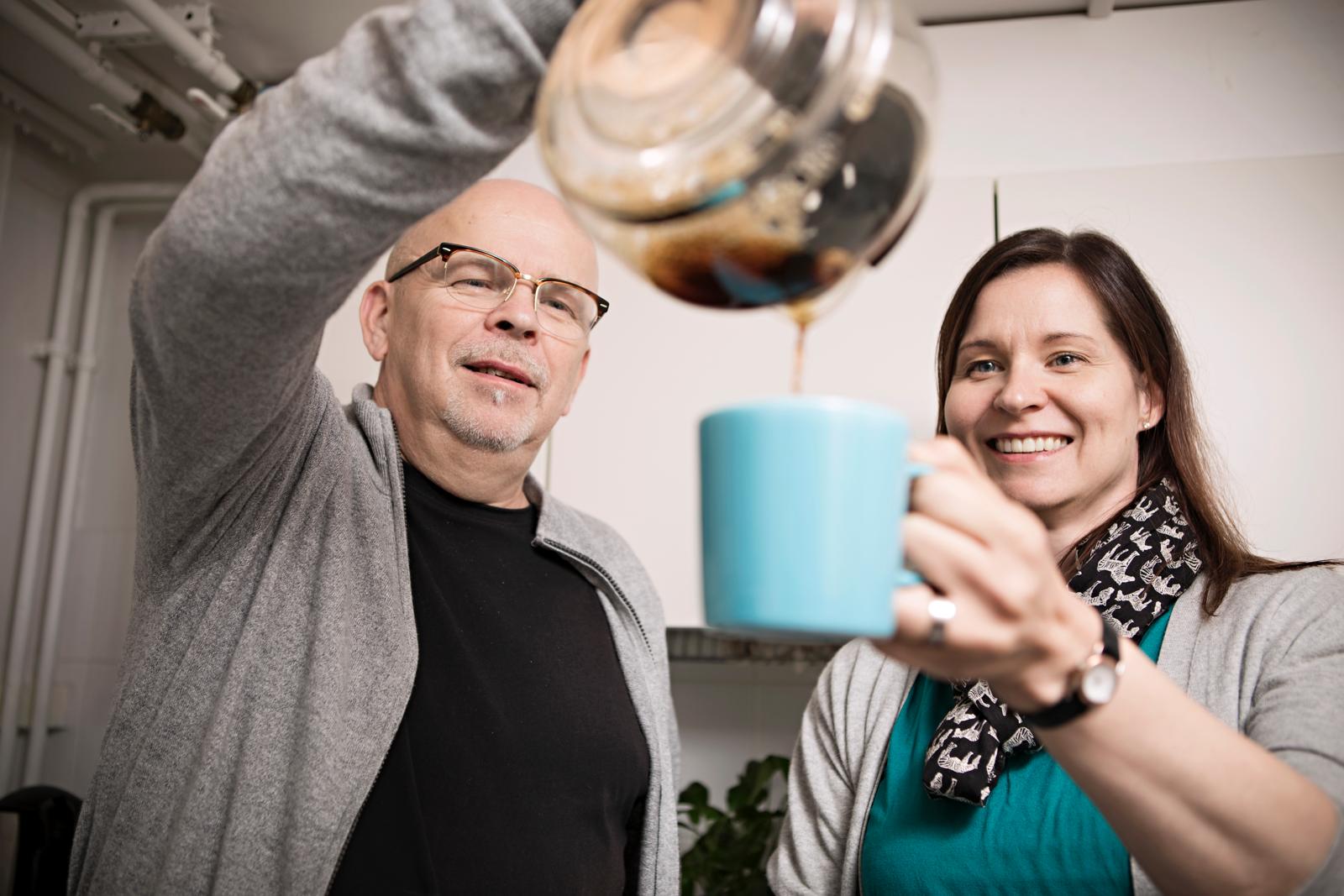
In practice, the survey reached approximately half of the thousand employees of Sokotel. Nearly all of the employees that received the survey signed a petition that called on the employer to resolve the break issue.
A refreshing break supports employee welfare in a demanding job.
“If you take your breaks, you’ll be more aware and more efficient. Employees who take breaks also have more energy at the end of the work day,” Miettinen says.
“They don’t just collapse on the sofa!” Mäkelä quips.
Miettinen and Mäkelä are full-time elected officials. They work in the greater Helsinki area, which has 14 of Sokotel’s 21 hotels. For the project, they cooperated with the chief shop stewards in Tampere, Vaasa and Oulu, and enlisted other active union members.
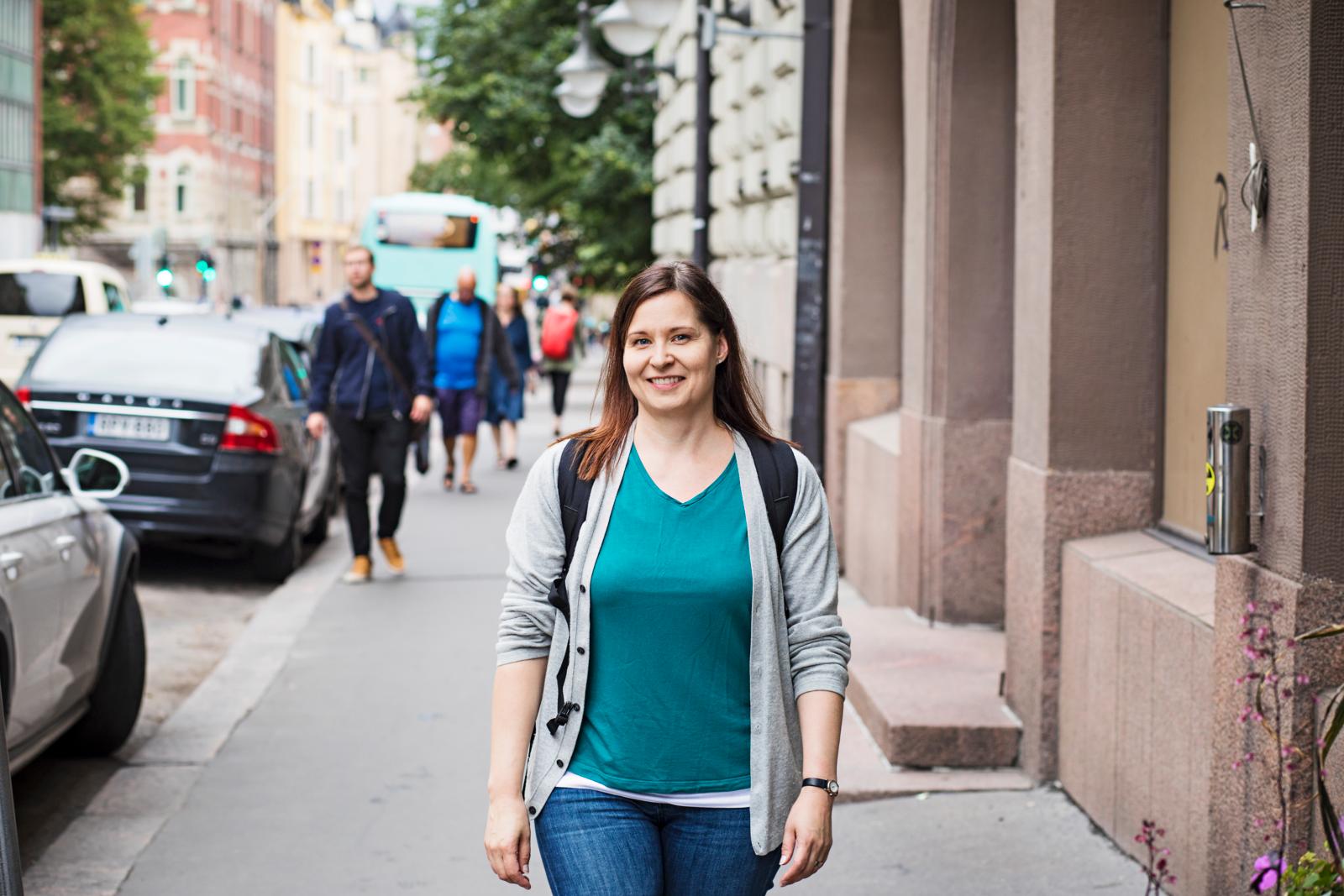
The work partners choose their words carefully. From the very beginning, the employer realised that breaks are something that should be promoted. But there were also some challenges. The employees wanted to negotiate a local agreement on breaks, but the employer was not enthusiastic.
Ultimately, they agreed to follow the current collective agreement more closely. According to the collective agreement, every shift of more than 6 hours in duration must include a coffee break and a half-hour rest period, or another period long enough for a meal, while taking the pace of the work into consideration.
According to Erika Kähärä, work environment specialist at PAM, the health care sector has adopted a paid break which allows for eating alongside work.
“It should be obvious that the employer must arrange the work so that it allows for breaks,” says Kähärä. If the flow of customers is so rapid that it is impossible for the employee to leave the post, or the employee is likely to be interrupted with unreasonable frequency during their break, the employer must arrange another employee to take over during the break or allow for a pause in the service for its duration.
At Sokotel, hotel-specific instructions were drafted, reflecting how breaks could be successfully arranged in each location, how to find someone to take over during breaks and how to take advantage of working across departments. Mäkelä and Miettinen believe that it will take time to change the culture – it won’t happen overnight.
Mäkelä summarises the roles of the employer and employee in creating a pro-break culture:
"The employer must enable a break, and the employee must take it."
Listening to these two talk about the break project, one can’t help but start thinking about the concern often raised in various seminars: how to keep young people working in the industry for longer. Employee coping has been recognised as as problem. Perhaps it really is time to fix the unclear break practices that have even been called the “black hole” of the hotel and restaurant industry.

This break project was carried out as a workplace action, and it received support from PAM’s paid staff.
The Sokotel break project
October 2018: Member survey on workplace concerns is sent out.
November–December 2018: Break survey sent out, collecting information on how breaks are taken.
January–February 2019: Results of the break survey were reported to the employees and employer.
March–April 2019: Negotiations to improve break practices.
June 2019: Hotel-specific break discussions launched.
May 2019: Finalising the project with HR. The “Gimme a Break” measure was implemented at all locations.

